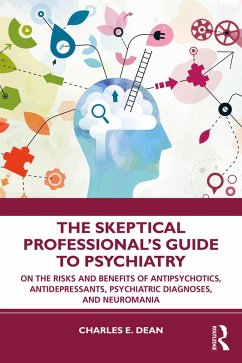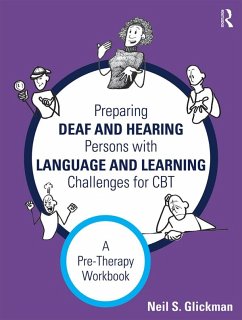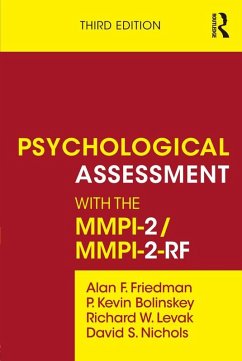
The Biopsychosocial Formulation Manual (eBook, ePUB)
A Guide for Mental Health Professionals
Versandkostenfrei!
Sofort per Download lieferbar
48,95 €
inkl. MwSt.
Weitere Ausgaben:

PAYBACK Punkte
24 °P sammeln!
Based on George Engel's model, The Biopsychosocial Formulation Manual presents ways to help psychiatry residents and students effectively gather and organize patient data to arrive at a complete mental health history in a limited timeframe. While most current models only take one factor into account, Campbell and Rohrbaugh emphasize and analyze three essential components (biological, social, and psychological).The process of identifying pertinent data for each component of the biopsychosocial formulation is explicated in detail. A separate section outlines how to use the biopsychosocial formul...
Based on George Engel's model, The Biopsychosocial Formulation Manual presents ways to help psychiatry residents and students effectively gather and organize patient data to arrive at a complete mental health history in a limited timeframe. While most current models only take one factor into account, Campbell and Rohrbaugh emphasize and analyze three essential components (biological, social, and psychological).
The process of identifying pertinent data for each component of the biopsychosocial formulation is explicated in detail. A separate section outlines how to use the biopsychosocial formulation to generate treatment recommendations. This volume includes a complete package for practicing the biopsychosocial method; this easy-to-use guide includes a data record sheet and downloadable resources to facilitate organization and assessment, appealing to both the psychiatric professional and the trainee.
The process of identifying pertinent data for each component of the biopsychosocial formulation is explicated in detail. A separate section outlines how to use the biopsychosocial formulation to generate treatment recommendations. This volume includes a complete package for practicing the biopsychosocial method; this easy-to-use guide includes a data record sheet and downloadable resources to facilitate organization and assessment, appealing to both the psychiatric professional and the trainee.
Dieser Download kann aus rechtlichen Gründen nur mit Rechnungsadresse in A, B, BG, CY, CZ, D, DK, EW, E, FIN, F, GR, HR, H, IRL, I, LT, L, LR, M, NL, PL, P, R, S, SLO, SK ausgeliefert werden.













